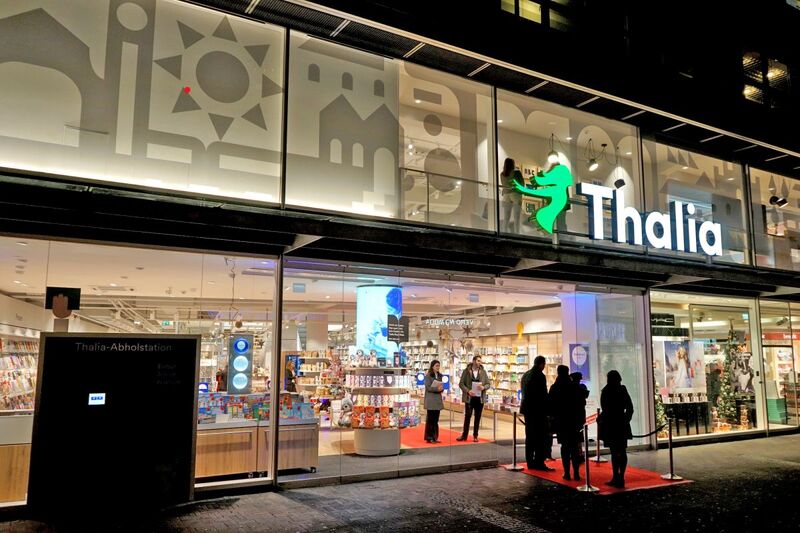You are viewing your 1 free article this month. Login to read more articles.
Dublin-based independent Lilliput Press celebrates 35 years of success
Named after a fictional island from Jonathan Swift’s famed novel Gulliver’s Travels, Irish indie Lilliput Press is this year celebrating 35 years discovering new authors and being at the forefront of Ireland’s literary scene.
Founded in 1984 by Antony Farrell in County Westmeath, close to a house where Swift spent his summers and the town from which he derived the name Lilliput, the office moved to its current location of Arbour Hill in Dublin in 1989. Since its formation, the press has published more than 600 titles encompassing art, music, memoir, literary criticism, philosophy, drama and poetry, from authors including James Joyce, J P Donleavy, Rob Doyle and Elske Rahill.
To mark its 35th birthday the publisher is rolling out a campaign entitled #Lilliput35, which the publisher is using to post daily pictures and tweets about a selection of its books such as The Irish Tradition by Robin Flower, a collection of lectures and introductions to medieval and modern Gaelic-speaking culture, first published in 1947, and The Ikon Maker by Desmond Hogan, a story about the dark complexities of love, mysteries of sexuality and anguishes of motherhood. It will also be offering a 20% discount on selected titles.
Farrell started off as an editor working in London, and then founded Lilliput Press while living on his mother’s farm—his then-wife supported the business by making cheese. He says that one of the biggest differences between the literary scenes in Ireland and the UK is the size of the industries. “Here, because of the scale, you can get directly to authors.” One writer the Lilliput Press works closely with is Booker Prize longlistee Donal Ryan, who was turned down by 47 agents and publishers before he signed with the press. “Since then he’s become a household name, and he still insists that we publish his original hardbacks,” says Farrell.
Working with authors and developing them is one of the highlights of running a small press, says Farrell (pictured below). “Indie presses have the important job of discovering writers and developing them, before they invariably get picked up by the corporates,” he says, adding: “I like publishing writers more than individual books. I prefer finding writers I can work with and develop and then I hope their books as a whole leave a lasting impression.”

The Lilliput Press publishes 10–12 titles a year, down from 15–18 previously in order to allow adequate time and resources to be dedicated to marketing and publicity. Farrell says: “I’ve been told to concentrate on marketing. The Arts Council [which part-funds the press] quite rightly insists we get out and sell the damn books.” He adds: “One book in five or six makes the money and keeps us going. Publishing is a lifestyle choice more than a professional one.”
While the press doesn’t have a uniform brand identity across its books, Farrell places a lot of emphasis and professional pride on the aesthetic of the each title. “We print in Spain and Finland and stitch books on quality paper. I see myself as a book maker as much as a publisher, because we take such care with the aesthetic.”
This all ties in with the resurgence of the physical book in the midst of digital fatigue after the e-book revolution. “The book has regained its status as an artefact, and is used as a reflective space in the mind to escape from digital culture,” he says. “A book in your hand is very different to reading on the screen.”
Brave new world
Technological developments have triggered countless innovations in the book world, which Farrell is amazed and humbled by. “There have been more books published since 1970 than in the history of the world [prior to that point], which is just amazing,” says Farrell. “When I was an editor in London, the industry was still using hot metal and letterpresses. The rate of change has just been extraordinary. I’m amazed and gratified to have lived through it and to still be hanging in there.”
Farrell is also proud of the work he has done mentoring a new generation of writers and editors through the press’ internship programme. Alumni include: Rosie Keane, cover design manager at Thames & Hudson; Sarah Davis-Goff and Lisa Coen, co-founders of Tramp Press; and writer Nicole Flattery, who published her début collection, Show Them a Good Time, with Bloomsbury in March.
“Our mentoring is a spring- board for a lot of people working in the industry,” says Farrell. The interns also have a lot to offer in terms of reader insight and energy. “It’s a valuable, two-way system,” he says.
This was written as part of The Bookseller's focus on publishing in Ireland; for more content from this focus, head here.













